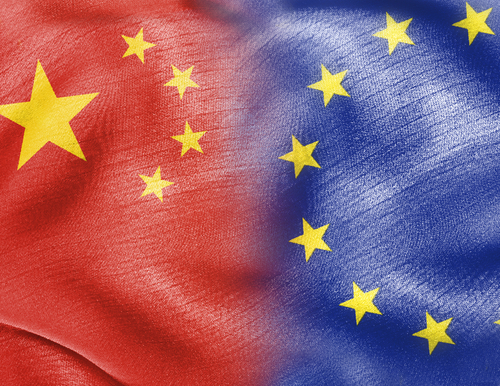
China’s economy is pivotal to global growth. The EU is China’s largest trading partner and the main destination for Chinese exports. For most European companies, providing goods and services to the Chinese market is the reason for doing business in China. However due to regulatory barriers to the Chinese market, complex and unclear public procurement rules, insufficient protection of intellectual property rights (IPR) and China’s exchange rate policy, EU companies report missing out on considerable business opportunities. One in four European companies is considering shifting investment out of China, concludes the European Chamber of Commerce in China(EUCCC).
Trade figures
The framework for EU-China trade relations is set by the 1985 Trade and Economic Cooperation Agreement. In 2006 the European Commission, through its competition and partnership policy strategy, pledged the EU to accept tough Chinese competition while pushing China to trade fairly. This strategy includes the ongoing negotiation of a Partnership and Cooperation Agreement (PCA), which started in January 2007. The EU’s goods imports from China in 2011 were worth €292.1 billion, compared to €136.2 billion in EU goods exports to China. Of particular note is the EU’s trade deficit with China that rose from €49 billion in 2000 to €155.9 billion in 2011. Furthermore it is not clear how deeply China has penetrated the Member States’ economies. In a recent resolution on EU and China, based on a report by Marielle de Sarnez (ALDE, France), the EP called for the establishment of a measuring instrument, modelled on the Committee on Foreign Investment in the United States, to shed light on foreign holders of sovereign debt.
China’s investment in Europe
Chinese investment is rising across the OECD. “There is enormous welfare potential coming from Chinese investment” says a study by Rhodium Group, a consultancy. They estimate that by 2020 Chinese firms will have amassed foreign direct investments (FDI) in Europe totalling €15-25 billion annually. Chinese firms already employ more than 45 000 Europeans and the figure is expected to rise.
Need for regulatory reforms
China benefited greatly from free trade, particularly after joining the WTO in 2001. In November 2011 the final transitional review on China’s implementation of its WTO commitments urged China to make improvements in transparency such as by publishing its rules, regulations and procedures. China uses targeted state subsidies to gain trade advantages and up until now did not put its subsidy programme into line with the WTO Agreement on Subsidies and Countervailing measures. Furthermore China should join the OECD Anti-Bribery Convention and implement the WTO Agreement on Government Procurement (GPA), which covers the purchase of goods and services by government agencies for their own purposes. Public procurement in China represents over 20% of its rapidly growing economy and the framework governing this economic activity is fragmented, inconsistent and unevenly implemented. This is relevant as China seeks to achieve “market economy” status. This classification would make it harder for European companies to impose tariffs on Chinese goods considered to be unfairly cheap. The EU would thus lose its main instrument to counter dumping of goods although it is worth pointing out that China deplores the EU’s trade barriers such as the significant subsidies for European farmers.
Reciprocity as the heart of a new partnership
The European Business in China Confidence Survey 2012, published by the EUCCC, shows how China’s strategic position for European companies has risen to unprecedented levels. Further frictions are caused by China’s recent restriction of rare earth quotas – vital to Europe’s leading edge sectors – as well as poor IPR protection; 85% of counterfeited goods seized at the EU’s external borders in 2010 were Chinese. Furthermore, in most cases, foreign companies are allowed to set up in China only through joint ventures, which too often include strategic technology transfers that favour the competitive development of China in fields in which the EU is at the forefront. If EU-China trade relations are to improve in order to achieve balance, ruling out protectionism would be the first step to achieve reciprocity.
Further reading
Trade facts: (Europe) (China)
European Commission, DG Trade: China
EU Chamber of Commerce in China: Publications








Be the first to write a comment.